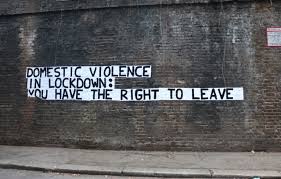Home Sweet Home

Domestic abuse, also known as “intimate partner violence,” affects every one in four women and every one in thirteen men in the state of Texas. It can be defined by any situation where one or both partners are in the relationship and use it solely to gain power. Domestic violence can be expressed in any way including physically, emotionally, sexually and even economically.
Anyone can be a victim of domestic violence. While the most common type is that of a partner using the intimate relationship to gain power and manipulate the other, unfortunately another common type is that of a parent manipulating and abusing their child/children. Another common type is a variation of intimate partner violence but where the female is targeted because of her race. This happens a lot with Muslim women, who are targeted most commonly by Muslim or white men.

- Embarrass you in front of friends or family?
- Put down your accomplishments?
- Convince you over and over that you are nothing without them?
- Treat you roughly (grabbing, pushing, yelling, shaking, etc.)?
- Pressure you sexually?
- Blame drugs or alcohol for the way they treat you?

- Sometimes feel scared about how they may behave?
- Consistently make excuses for their behavior in front of other people?
- Believe it is your fault that they act the way they do?
- Stay with them only because you are scared of what they might do?
If any of these questions earned a “yes,” you are not alone. Don’t ever be afraid to report or leave your partner. In cases of parents abusing children, reach out to another family member. Always remember it is not your fault, and it never will be, regardless of what they say to you. If you ever need help understanding why your situation is happening, take a look at the Power and Control Wheel. It outlines the abusive patterns and behaviors. Some of the most commonly used behaviors on the wheel are male privilege and threats. Often, the abusive partner is a male and will use that to his advantage. He may say things like, “I’m the man of the house; you will do what I say.” or sometimes even, “If you don’t listen to me I will leave you.” While domestic violence happens to everyone, it is no secret that women are often pushed aside or laughed at when they report abuse, so it makes sense that a man would use this fact to his advantage. Along with this is the common use of threats like, “If you leave me I’m going to kill myself.” Unfortunately, this is one of the most commonly used threats.
There are ways to identify abuse in general, and then there are ways to identify specific types of abuse. To identify emotional abuse, ask these questions:

- Call you names?
- Act jealous or possessive?
- Withhold affection as punishment?
- Expects you to ask permission?
- Monitor where you go?
- Isolate you from other people?
To identify psychological abuse, ask these questions:
Does your partner:
- Cause fear by intimidation?
- Threaten physical harm to themself, you, or someone else?
- Destroy property/hurt pets?
- Force isolation?
To identify economic or financial abuse, ask the following questions:
Does your partner:
- Withhold access to money?
- Forbid attendance at school and/or place of employment?
- Constantly remind you of their financial power?
To identify physical and sexual abuse, ask these questions:
Does your partner:
- Damage property when angry?
- Push, slap, kick, or bite you?
- Abandon you in unfamiliar places?
- Use physical force during sex?
- Accuse you of cheating?
- Insult you sexually?
- Hurt you with weapons during sex?
- Hold you down during sex or arguments?
- Manipulate you into having sex even if you do not want to?
- Perform(ed) non-consensual sex?

Another form of domestic violence that is often overlooked is stalking. Stalking can be identified by being followed, receiving phone calls from the same person even if you’ve blocked them or asked them to leave you alone, or even receiving packages or flowers from unknown people.
For any survivors or current victims, please remember that it is never your fault. You do not deserve it. Never be afraid to report. Do not be afraid to reach out to other survivors for help. If you ever need help in a situation like this, find the nearest women’s shelter or call the National Domestic Abuse Hotline 800-799-7233.
Your donation will support the student journalists of Joshua High School. Your contribution will allow us to purchase equipment and cover our annual website hosting costs.








Laura • Nov 10, 2023 at 12:53 PM
I love the way this story is displayed! Important topic to talk about…